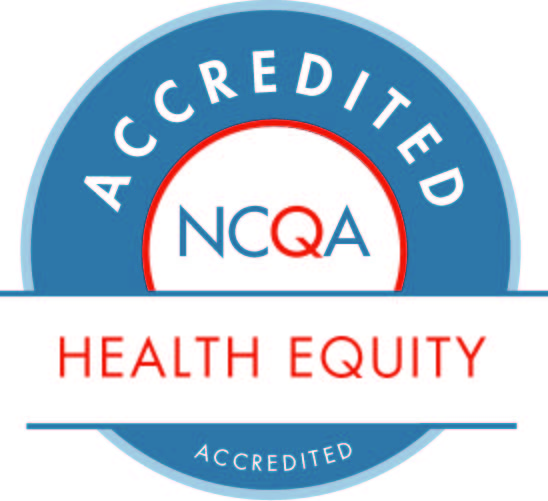What is Health Equity?
According to the Oregon Health Authority:
“Oregon will have established a health system that creates health equity when all people can reach their full health potential and well-being and are not disadvantaged by their race, ethnicity, language, disability, age, gender, gender identity, sexual orientation, social class, intersections among these communities or identities, or other socially determined circumstances.”
Achieving health equity requires collaboration across sectors and communities, addressing historical and systemic inequities, and ensuring fair distribution of resources and opportunities.
You can learn more at the Oregon Health Authority’s Office of Equity and Inclusion.
OUR APPROACH
Advancing health equity is at the core of our mission, woven into our programs, policies, and operations.
NCQA Health Equity Accreditation
We hold Health Equity Accreditation from the National Committee for Quality Assurance (NCQA). This milestone reflects our alignment with OHA’s mission to eliminate health inequities in Oregon by 2030. We remain deeply committed to partnering with our members, providers, and the communities we serve.
Our Commitment
Our NCQA accreditation demonstrates our commitment to evaluating and improving health equity practices across our organization. This accreditation requires us to actively monitor and improve our efforts in providing equitable care.
Here’s a look at how we are putting that commitment into action.

Using Data to Identify and Address Disparities
- We have implemented a formal policy and procedure for collecting and using REALD (Race, Ethnicity, Language, and Disability) and SOGI (Sexual Orientation and Gender Identity) data.
- We analyze data to monitor disparities in quality metrics, utilization patterns, and chronic conditions.
- We focus on improving the collection of data on sexual orientation and gender identity to better understand the population we serve.
Ensuring Language Access and Cultural Responsiveness
- Our Language Access Plan ensures that language services are readily available and that all materials can be translated or provided in alternative formats upon request.
- We regularly monitor member needs for interpreter services and gather feedback through interpreter satisfaction surveys.
- We are increasing the number of OHA Certified and Qualified Healthcare Interpreters in Douglas County by offering scholarships for interpreter training.
Reducing Health Disparities
- We created a time/distance dashboard to identify and improve access to nearby providers, addressing disparities between rural and urban areas.
- We target disparities in key clinical areas, including diabetes management and treatment for substance use disorders.
- Our Long-Term Services and Supports (LTSS) program has been enhanced to better reach members with intensive care coordination needs, including outreach to deaf and blind LTSS members.
- We equip providers with training to deliver inclusive, gender-affirming care.
Want to Know More?
Each year we update our organization’s Health Equity Plan, outlining all of the strategies and goals we have been and will be pursuing to improve our health equity practices.